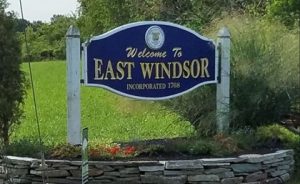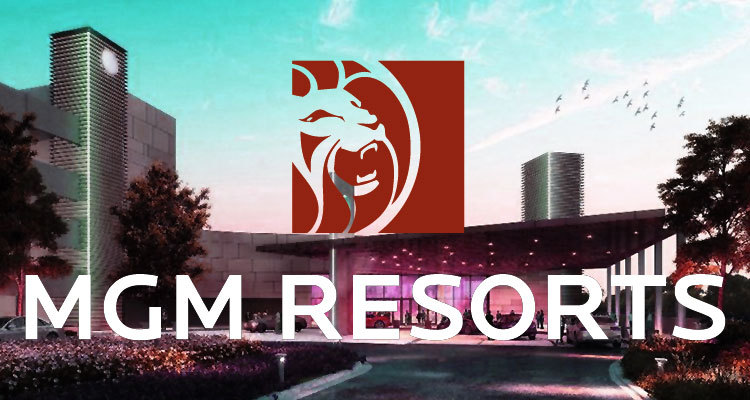In the seemingly endless drama surrounding a proposed East Windsor casino, American global hospitality and entertainment company, MGM Resorts International has sued the U.S. Interior Department over changes it approved in the state’s gaming compacts with the Mashantucket Pequot and Mohegan Indians in March.
Filed on August 7 in U.S. District Court in Washington, MGM’s 33-page lawsuit accuses that the modifications approved by the Interior Department and Indian Affairs Assistant Secretary, Tara Sweeney, allow the two federally recognized Connecticut tribes to operate a commercial, off-reservation casino in the Hartford County town of East Windsor, sans competition.
Tribal Winds proposal:
The planned $300 million gambling enterprise named Tribal Winds Casino received its final state approvals in June 2017 and was to be built by MMCT, the Mashantucket Pequot and Mohegan tribal nations partnership responsible for the East Windsor plan. The satellite casino would be located just 13 miles from the Las Vegas-based operator’s $960 million MGM Springfield facility that began welcoming players on August 24, 2018.

Beyond scope:
A strategic repositioning from its previous accusation that Connecticut violated the state’s constitution in its no-bid approval of what is an effort to compete with the Springfield property (Bridgeport), MGM’s new suit argues that the U.S. Department of the Interior and its Bureau of Indian Affairs (BIA) lack the authority to sign off on amendments to the state’s gambling compacts with its two tribes for any such venue.
According to The Connecticut Mirror, the suit states…
“The amendments are not limited to an East Windsor casino: they facilitate commercial, off-reservation gaming by the tribal joint venture anywhere in Connecticut, and state legislators have recently proposed granting the joint venture an exclusive, no-bid license to operate a casino in Bridgeport, Connecticut. The amendments thus confer a statewide, perpetual competitive advantage on the joint venture.”
Sports betting incentive:
As the southern New England state seeks to legalize sports betting, the potential years-long litigation process is likely to raise doubts regarding the legality of the tribes developing off-reservation casinos as well as its ability to compete for sports betting exclusivity there.
According to a report late last month from the Hartford Courant, a bipartisan group of legislators has proposed legislation that would allow the two tribes that are already responsible for the Foxwoods Resort Casino and Mohegan Sun located on their respective reservations in eastern Connecticut, to build and operate a casino for the city of Bridgeport.
To be considered at a special legislative session later in the year, the measure as written would also authorize the tribes to run on-site and mobile-friendly sportsbetting services with any revenues subject to respective tax rates of 8% and 10%. The legislation also purportedly makes Internet Keno and online and app-based lottery ticket sales available via the Connecticut Lottery.
MGM, meanwhile, was unsuccessful in its attempt to bring a $675 million harbor-side casino resort to Bridgeport, announced in September 2017.
The proposed measure would additionally require any new facility from the tribes their existing compact arrangement and pay 25% of its slot revenues to the state. The legislation would also purportedly call for a 10% contribution from the envisioned Bridgeport venue for use by Connecticut’s tourism marketing fund but invalidate the whole arrangement should a court overturn any part of the legislation.

However, according to The Connecticut Mirror, the tribes on Monday reiterated that they will not relinquish their plans for East Windsor in return for sports betting or any other incentive.
Osten calls it:
One of the main supporters of the new legislation, Connecticut State Senator Cathy Osten, replied to a question from the Hartford Courant last week about the possibility of MGM launching a legal action to stymie the Bridgeport scheme by describing the firm as ‘a litigious company’ that has ‘sued many people.’
And here we are just days later and MGM is upping the ante having filed a suit that the gambling behemoth has been organizing for months, possibly longer.
Via the suit, MGM asks a federal judge to vacate the approval of the amendments by the Department of the Interior, alleging a violation of the Administrative Procedure Act and federal Indian gaming law.
MGM said in a statement…
“MGM Resorts is filing this lawsuit because the Interior Department’s decisions violate established federal law and prevent MGM from competing on equal terms in Connecticut.”
Money talks:
Spokesman for MMCT, Andrew Doba, purportedly said that MGM’s suit should have no effect on the debate over sports betting or any other gambling in the state.
“The choice for Connecticut policymakers can’t get any clearer,” said Doba. “We can either let a Las Vegas company that generates not one dime of revenue for the state push us around, or we can stand strong with the tribes and an industry that’s generated more than $8 billion in tax revenue and currently employs 18,000 people,” as reported by The Connecticut Mirror.
Decades-old deal:
A product of a quarter-century-old deal negotiated by Connecticut’s 85th governor, Lowell P. Weicker Jr, with the Mashantucket Pequot and, later, Mohegan tribal nations to allow slot machines at what are now two of the largest casinos in the world (Foxwoods and Mohegan Sun).
And while the deal opened the door to casino gambling in the state and gave the tribes exclusive rights to it in return for 25% of their gross slot revenues, it did not anticipate the public’s changing attitude toward casino gambling. The tribes now face stiff competition from casinos in neighboring Massachusetts along with Rhode Island and New York, not to mention the May 2018 invalidation of the Professional and Amateur Sports Protection Act (PASPA) of 1992 by the U.S. Supreme Court, which paved the way for legalized sports betting in the states.

MMCT gets green light:
After MGM received approval from Massachusetts to open a casino in Springfield, the tribes looked to get the green light to build and operate a satellite casino in East Windsor, within approximately 12 miles of Springfield. The passing of Public Act 17-89 – An Act Concerning the Regulation of Gaming and the Authorization of a Casino Gaming Facility in the State – in 2017, the tribes MMCT Venture was effectively granted Massachusetts’ first commercial casino license.
MGM has reportedly previously claimed that the special act violated the U.S. Constitution’s equal protection and commerce clauses. However, its Massachusetts’ license prohibits the Nevada-based company from conducting business within 50 miles of Springfield, effectively eliminating any notion of competing for the East Windsor site.
Gloves on:
Also commenting on the recent suit, Connecticut Governor Ned Lamont said he’s looking for a solution that stays clear of lawsuits that challenge legislation.
According to the Hartford Courant, the governor said…
“As I have consistently said, our state needs to reach a global gaming resolution that will avoid years and years of complex litigation,” he said in a statement. “It has always been my intention to develop a comprehensive gaming platform that not only strengthened Connecticut’s gaming industry, but protected it from litigation.”



